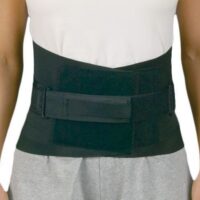When to Consider Back Surgery
Introduction
Back pain is a common issue that affects many individuals. While most back pain cases can be managed with conservative treatments, there are instances where surgery becomes a necessary option. This article, written from a physiotherapist’s perspective, aims to guide you through understanding when surgery might be considered for back pain and what to expect during the recovery process.

Back Pain Causes
Back pain can stem from various causes, such as muscle strains, ligament injuries, and degenerative conditions like arthritis or disc issues. It’s estimated that 90% of people with back pain recover with conservative management, which includes physiotherapy, medication, and lifestyle changes.
Indications for Back Surgery
- Serious Spinal Pathology: Surgery is often recommended for serious conditions such as cancer, spinal infections, cauda equina syndrome, spinal fractures or instability, and certain spinal arthropathies like rheumatoid arthritis or ankylosing spondylitis.
- Failure of Conservative Treatments: Surgery is considered when conservative treatments like physiotherapy, medications, and lifestyle modifications have been exhausted over a significant period, typically recommended for at least 3 months, but the pain persists.
- Loss of Neurological Function: Surgery may be necessary in cases where there is pain accompanied by neurological symptoms. This includes symptoms like pain referral down the leg, significant night pain, lower limb weakness, reduced reflexes, or altered sensation in the legs or feet.
Recent Research and Surgical Advances
Recent advancements in surgical techniques and an understanding of spinal conditions have led to more effective and safer surgical interventions. Decompressive spine surgery, for example, is widely used for conditions with neural compression or neurogenic claudication, despite having a low evidence base.
Post-Surgical Considerations
After surgery, physiotherapy plays a critical role in recovery. The rehabilitation process typically begins within the first two weeks post-surgery. Research has shown that supervised exercise can significantly improve pain and disability after lower back surgery.
Physiotherapy After Back Surgery
The early stages of physiotherapy focus on reducing pain, teaching correct spinal mechanics and posture, and activating trunk stabilising muscles. As recovery progresses, exercises are tailored to safely return you to your previous level of function.
What to Do?
If you are considering back surgery, it’s crucial to discuss your options with a physiotherapist and spinal surgeon. They can provide valuable insights into whether surgery is the right option for you and what to expect during the recovery process.
Conclusion
Deciding to undergo back surgery is a significant decision that should be made after careful consideration and consultation with your healthcare professionals. Surgery is typically considered when conservative treatments fail, especially in cases involving serious spinal pathology or loss of neurological function. Physiotherapy plays an integral role in both pre-surgical preparation and post-surgical recovery, helping patients regain mobility and quality of life.
For more detailed information and to explore various treatment options, please book to see your PhysioWorks physiotherapist or doctor. Their resources and professional guidance can provide deeper insights into managing back pain and the role of surgery in treatment.








































































